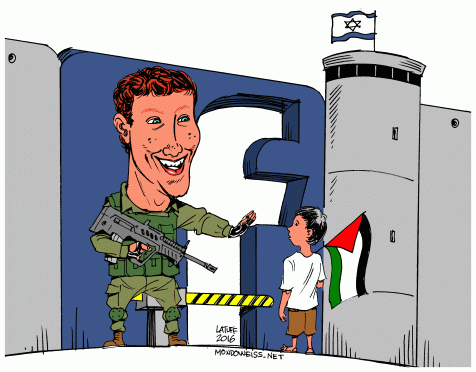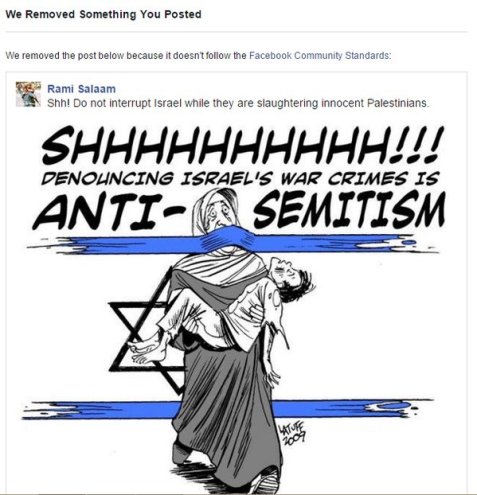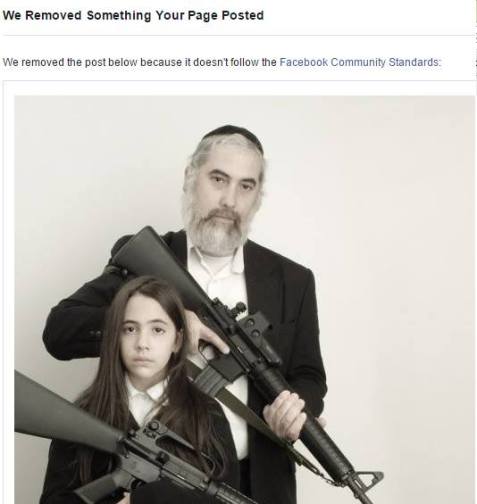The Absurd Times
Illustration: So much for all the B.S. In the Republican Debates
Syria, Drugs, Hillary's Daughter, AJAM, Terrorism
by
Editor
We have not been able to post recently as we had suffered a terrorist attact by the joint forces of Toshiba and Microsoft. Much of our original data is still not accessible, but we are working on it. Note: if you don't need to upgrade to 10, don't.
Now some idiot liberals, with concern for your health, are campaigning against the heroin overdose epidemic. How would they do it? By actually spending some money on treatment or education? No. See, the idea is that prescription painkillers lead to heroin addiction and many heroin users first used prescription painkillers. The fact that this is also true of milk and bananas makes no difference. If people start enjoying milk and bananas, we will need to clamp down on them as well. The same was once said of pot, but now voters are rebelling against that and changing laws. Enough. Work towards universal health care or cure cancer – that would be a worthy goal, but perhaps too hard for them?
We have mentioned, and posted, how six corporations control almost all the media in the United States. There was, for a short time, one mass exception – Al Jazerra. Well, that will be shut down in a couple of months.
Sad to say, yes, Ted Cruz is an American natural born citizen. Donald Trump as well. That does not mean they are worth listening to. We missed the debate as the slimy moderator is offensive and others things were more interesting.
Two of the notable exceptions to the corporate control of our media are the Nation magazine and Democracy Now. Here they are joined together to discuss the situation and the impending election:
TRANSCRIPT
This is a rush transcript. Copy may not be in its final form.
JUAN GONZÁLEZ: Well, Katrina, in that you mentioned Bernie Sanders, The Nation, for the—only the third time in its history, has endorsed a candidate in a primary, Democratic primary, endorsed Bernie Sanders. And I'm wondering why you made that decision.
KATRINA VANDEN HEUVEL: For more than three decades, Bernie Sanders has championed ideas and issues, which have essentially been off the radar of our downsized politics. Those very ideas and issues are ones which have animated The Nation. At the heart of it, I would say, is you have someone in Bernie Sanders who is the real deal, who is honest, who has integrity and is a truth teller about the rigged system that is shafting so many people in this country, the inequality that is leading this country to be a plutocracy, not a democracy. And for those reasons, The Nationbelieved it was an important moment to speak to those issues—there are others—but in Bernie Sanders, there's a political revolution that could upend the distorted priorities of this country, the sweetheart deals too many are getting, the grip of banks and insurance companies and pharmaceutical companies on this country, and speak to a better future. And I think he has opened, whatever happens—and we're aware the road to the White House is steep—he has opened space for a more powerful progressive movement. And he has changed the kind of politics that is possible.
Think of the fact that he has raised—what struck me about our media—and, by the way, the Republicans rail against a liberal media last night—Donald Trump and The New York Times, as Mr. Turnipseed said. It's not a liberal media. It's a corporatized media system that is rigged against the public interest and our democracy. That's why Democracy Now! exists or The Nation exists. And it has—this media system has failed to—you know, until recently, failed to cover Bernie Sanders and his ideas, and has shamefully lavished attention on Donald Trump. And we think that people have seen through that. And I think the media woke up—I'll stop here—when Bernie Sanders raised what? Some $70-plus million from more small donors than President Obama had in 2008. And I think the sadness is our media system and our politics measure viability by money. But people woke up. But the fact that he is unbought, because he's not taking PAC money, he's not taking corporate money—these are small donors—suggests he could put forth a bold agenda and fight for it.
AMY GOODMAN: So, what made you decide to do this primary endorsement? You have done it twice before.
KATRINA VANDEN HEUVEL: Twice before.
AMY GOODMAN: Jesse Jackson.
KATRINA VANDEN HEUVEL: Jesse Jackson, and Barack Obama in 2008. I don't think there's any candidate who—you know, Bernie Sanders, again, has spoken to the issues, has lifted up the issues, has represented the issues and ideas, many of them, the key ones, that The Nation has also. And he—you know, I mean, we believe that inequality is probably the existential crisis of our time—inequality of political power, inequality of economic power, inequality of the ability to engage the world in a different way. And Bernie Sanders is speaking so honestly and truthfully about those issues. He doesn't do small talk well. He also goes into rooms and rouses people. The rallies were as large as Trump's over this last summer. But that is why we believe at this moment that Bernie Sanders is, with integrity and principle, summoning people for a political revolution, as he calls it, which is essentially participatory democracy on steroids and is needed to upend a system that is pretty corroded. And—
JUAN GONZÁLEZ: But, Katrina, in that vein, though, the lead—the big support he's getting in places like Iowa—
KATRINA VANDEN HEUVEL: Yeah.
JUAN GONZÁLEZ: —and New Hampshire, these are two of the whitest states in the nation. And the reality is that the path to the Democratic nomination has to go through the cities of America, through the black and brown communities of America. And to what degree has Bernie Sanders been as active or been as well identified—
KATRINA VANDEN HEUVEL: Juan, absolutely.
JUAN GONZÁLEZ: —with the social movements around police abuse, against racial discrimination, around immigration—
KATRINA VANDEN HEUVEL: Yeah.
JUAN GONZÁLEZ: —as he has among Wall Street battling and antiwar issues?
KATRINA VANDEN HEUVEL: So, thank—I mean, I think the—thank you for reminding me of what is in our editorial. We speak to this very clearly. This is a movement moment in this country. It's a fascinating moment. And Bernie Sanders is also intersecting and lifting up the voices of those movements, whether it's Black Lives Matter. He had tough confrontations with them last summer. He has come forward with a very robust agenda on curbing abusive policing, on racial justice, on ending mass incarceration. He is in constant dialogue with these movements—the climate justice movement, the Fight for 15, reproductive justice movement, the DREAMers. There is no question that he has a tough road, Juan, for all the reasons you described. Those two states, first two states, are primarily white, though they've changed, too, the demography. But he is very tentative, Bernie Sanders is, to building a larger coalition. A lot of people haven't met him yet. He's heading and working in places like South Carolina and in those states.
But listen, I also want to say that the editorial notes that Hillary Clinton is someone of experience, of grit, of intelligence. She has responded to the populist moment. I think she's come, more recently, to some of these issues of economic inequality. I think of the trade deal, where she was moved—again, by the movements of this time. But she would be far, far more preferable to those people we saw on the stage last night. We have a Supreme Court that could be reshaped by the next president. Her foreign policy is hawkish. And I think, unlike other progressive endorsements we've seen from groups, we lay out very clearly why we think there is a real distinction between Hillary Clinton's hawkish foreign policy and Bernie Sanders, who's one of the few candidates recently to say America alone should not be policing this world, as opposed to regime-change foreign policy, and, I think, speaks to a better vision of engagement with the world.
AMY GOODMAN: What's your argument against Hillary Clinton on foreign policy, her hawkish views?
KATRINA VANDEN HEUVEL: You know, she has come out and said it was a mistake to vote for the war authorization in Iraq. Has she learned the lessons from that? We argue not. Libya? She was a key supporter of regime change in Libya. What has happened in Libya? It's become a haven for ISIS. She was a key supporter of ousting Assad, which has fueled an ugly civil war. We need to find a diplomatic resolution to that crisis. She supported the Iran nuclear deal, but, in so doing, she has rejected a broader relationship with Iran. And so, all of those factors—she's very much a cold warrior when it comes to relations with Russia.
And she—I think one power the president has, Amy and Juan, is you bring a new set of people to Washington. The Clintons—and I never want to link Hillary Clinton to her husband, because she's her own person, her own woman. But there is a team of people, particularly in foreign policy, who will be brought back in. And in that context, the hope is with Bernie Sanders. And there is a project underway to—you know, other—fresh faces. Wouldn't Washington be—could be a different place. Obviously, the power, the deep power, the deep state, but you could bring new people who could see, in new ways, what is possible.
AMY GOODMAN: I want to play a clip of Bernie Sanders, then Hillary Clinton. This is Sanders taking aim at Wall Street during a speech here in New York at Town Hall, vowing to break up the biggest banks within a year of taking office.
SEN. BERNIE SANDERS: Greed is not good. In fact, the greed of Wall Street and corporate America is destroying the very fabric of our nation. And here is a New Year's resolution that I will keep if elected president, and that is, if Wall Street does not end its greed, we will end it for them.
AMY GOODMAN: So, that is Bernie Sanders in New York. Well, last night, Hillary Clinton appeared on Rachel Maddow's show on MSNBC criticizing Bernie Sanders calling for single-payer healthcare system, accusing Sanders of not laying out how the plan would work or be funded.
HILLARY CLINTON: The only clue that I can find, because he hasn't laid out a plan, is to go back and look at the bills that he's introduced, nine different times. And it's a bit concerning to me, because it would basically end all the kinds of healthcare we know—Medicare; Medicaid; the CHIP program, Children's Health Insurance; TRICARE for the National Guard, military; Affordable Care Act exchange policies; employer-based policies. It would take all that and hand it over to the states. And—
RACHEL MADDOW: Well, he calls it Medicare for all.
HILLARY CLINTON: But—but—
RACHEL MADDOW: He's basically saying we'd replace the existing system—
HILLARY CLINTON: But Medicare for all is not—is not the same, if you're turning it over to the states. Now, if he has changed his mind, after introducing that bill nine times, he owes it to the public to tell them. If he has changed his mind about having the federal government pay 86 percent of the cost and having states have to come up with the remaining 14 percent, when in fact we know Republican governors won't even pay for Medicaid, which they are going to get initially for nothing, well, that's what we mean.
AMY GOODMAN: That's Hillary Clinton. And she is running scared right now. I mean, the numbers, they are—I mean, he is really surging, if you believe the polls. Sanders is surging in both Iowa and, of course, in his neighboring state—
KATRINA VANDEN HEUVEL: Absolutely.
AMY GOODMAN: —from Vermont of New Hampshire. But what about what she said about single-payer healthcare and universal healthcare?
KATRINA VANDEN HEUVEL: The "Kumbaya" moment is over, Amy, as they enter into these two states. Let me just say, though, on the Wall Street clip you used, there's no question that there are two different visions of regulating Wall Street. Bernie Sanders talks about breaking up the big banks; Hillary Clinton is more reliant on regulation. I think, again, Senator Sanders is unbought and able to speak honestly about what he would do. Hillary Clinton has moved on those issues.
On those single payer, what struck me is how politically, if I could, you know, tone-deaf what Hillary Clinton is doing, because Medicare for all is so popular among not just the Democratic base, but so many people. Why not say, you know, Senator Sanders may be unrealistic, we can't get to Medicare for all as quickly as he's saying, it's too expensive? But, in fact, what she's saying is mischaracterizing this idea that it's all going to go back to the states, that he's going to take away your Medicare, your Obamacare, your SCHIP. He's not. And she's not attributing the cost savings. We are the only Western industrialized country that doesn't have healthcare for all. We're paying more. The pharmaceutical companies are ripping us off. And she should be saying, "OK, Obamacare is here, but the history of American reform is we've got to build on it incrementally." Instead, she's kind of saying, "He's trying to take away your healthcare." No, he's not. He's trying to bring you Medicare for all, which is very popular and has been stymied by pharmaceutical companies. So I think it's a misguided attack. And I think it's misguided of her also to take Wall Street Journal editorials attributing how we'd all have to pay $15 trillion more, without understanding the benefits of savings if you had a single-payer, Medicare-for-all program.
JUAN GONZÁLEZ: Yeah, I'd like to ask Tom Turnipseed, if he's still with us, to talk about the legacy of this politics of fear that you mentioned was shown in the Republican debate. George Wallace did not succeed, obviously, in 1968, but he did get 13 percent of the vote as an independent candidate. And he probably took more voters from the Democrats than he did from the Republicans, because that was the year that Nixon beat Hubert Humphrey, and basically paved the way, many believe, for the Republican Party to begin grabbing ethnic white voters out of the Democratic Party. Do you see, in this new politics of fear, any possibility of sort of a realignment of the voters around some of the ideas of a Trump or even a Ted Cruz?
TOM TURNIPSEED: Gosh, it's hard to tell. I know that they're appealing to, in my opinion, to poor white people that feel like they've been kind of left out. And that's, you know, a big similarity. You know, the one thing, too, that's very, very interesting to me is how this idea of Donald Trump, in, you know, how he's really using that fear thing—and, you know, you got to be afraid of the Chinese and the Mexicans and so forth and so on—and then, you know, he's doing a hell of a job doing it, too.
The other thing I want to say and get this in edge-wise—I was trying to tell it a minute ago—me being here in South Carolina and maybe knowing a little bit about what's going on, is that when Bernie Sanders came down here, he spoke to a couple of African-American colleges, you know, that are predominantly African-American, and got a real good reception. He's doing a good job at working the African-American vote down here. I guess Hillary is still a little bit ahead, you know, with the African-American vote, and maybe overall, but he's coming on strong here in South Carolina, believe it or not.
AMY GOODMAN: Well, we're going to leave it there right now, and I want to thank you both for being with us.












